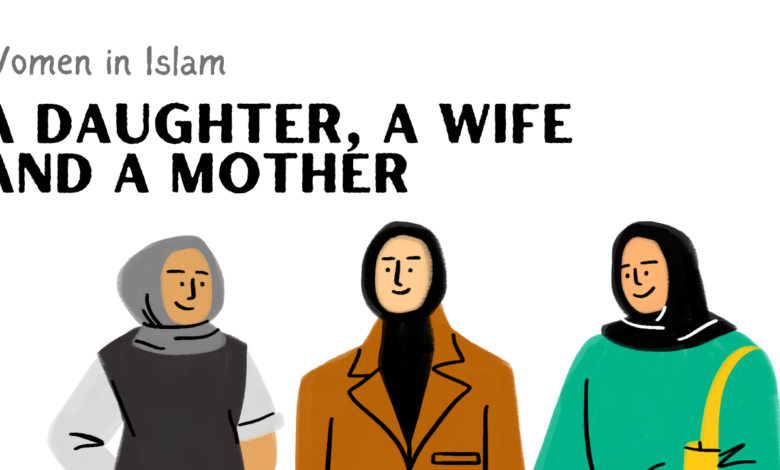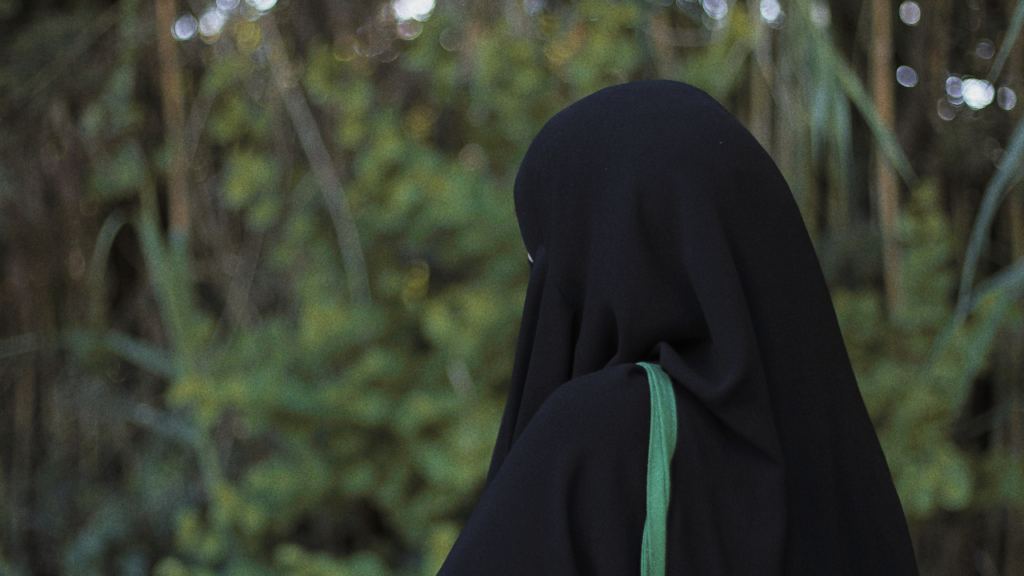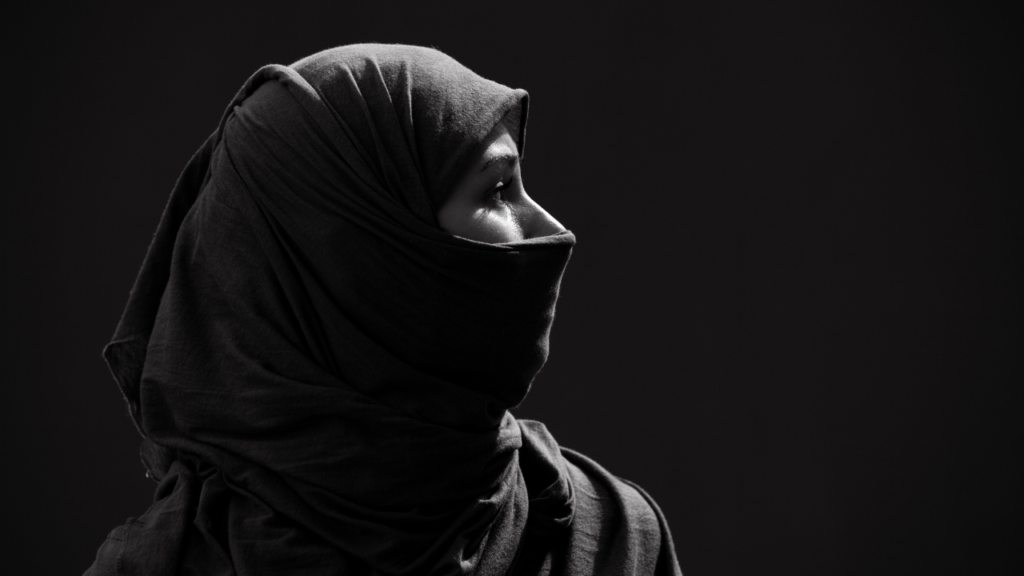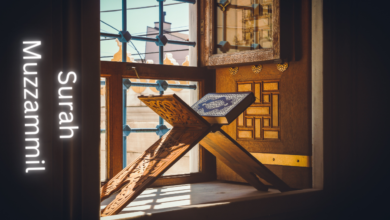Women in Islam- A Daughter, A Wife and A Mother
Exploring the Multifaceted Roles of Women in Islam

Women in Islam- A Daughter, A Wife and A Mother
Daughters in Islam are considered a blessing and are highly valued. They hold a special place in their parents’ hearts, and their upbringing is seen as a source of reward in the Hereafter.

Introduction
The role of women in Islam is a topic that has been widely debated and often misunderstood. While some may perceive Islam as a religion that oppresses women, a closer examination reveals a more complex and nuanced perspective. In Islam, women are revered as daughters, wives, and mothers, each role carrying its own significance and responsibilities. This article aims to shed light on the multifaceted roles of women in Islam and how they are valued and respected within the faith.
Daughters in Islam
In Islamic tradition, daughters hold a special place in the hearts of their parents. The birth of a daughter is seen as a blessing, and the Quran acknowledges this in several verses. For instance, in Surah Al-Shura (42:49-50), it is stated: “To Allah belongs the dominion of the heavens and the earth; He creates what He wills. He gives to whom He wills female [children], and He gives to whom He wills males. Or He makes them [both] males and females, and He renders whom He wills barren. Indeed, He is Knowing and Competent.“
These verses emphasize that the gender of a child is determined by Allah’s will and that both sons and daughters are equally valued in the eyes of God. Daughters are considered a source of mercy and a means for parents to earn rewards in the Hereafter through their care and upbringing.
Also check.
- Why Does Allah Test Us?
- What is Gambling in Islam?
- Why is Hajj Important?
- What is Interest in Islam?
- What is Hell in Islam?
Wives in Islam
Marriage in Islam is viewed as a sacred contract between a husband and a wife, and both partners are expected to fulfill their respective roles and responsibilities. The Quran, in Surah Al-Rum (30:21), highlights the significance of marriage, stating: “And among His signs is that He created for you from your own selves mates that you may find tranquility in them; and He placed between you affection and mercy. Indeed, in that are signs for a people who give thought.”
Islam encourages mutual respect, love, and partnership between spouses. Husbands are instructed to treat their wives with kindness and to provide for them, while wives are advised to be obedient and supportive. However, obedience here is often misunderstood—it implies a harmonious partnership where both spouses consult and make decisions together.
Mothers in Islam
Motherhood is regarded as one of the highest and most honorable roles in Islam. The famous saying of the Prophet Muhammad (peace be upon him) encapsulates the respect given to mothers in Islam: “Paradise lies under the feet of mothers.” This saying underscores the importance of honoring and respecting one’s mother.
Islamic teachings emphasize the rights and responsibilities of mothers, emphasizing their role in nurturing and educating their children. Mothers are responsible for instilling moral values, religious teachings, and a strong sense of character in their offspring. Their role as caregivers and educators is pivotal in shaping the future of the Muslim community.
Conclusion
In Islam, women are not oppressed or marginalized; rather, they are revered and respected as daughters, wives, and mothers. Each role carries its own significance and responsibilities, and women are encouraged to fulfill them with devotion and sincerity. The Quran and the teachings of the Prophet Muhammad (peace be upon him) emphasize the importance of equality, love, and mutual respect between spouses and the honor and respect due to mothers.
It is crucial to understand that cultural practices and interpretations may vary, and there can be instances where these Islamic principles are not fully realized. However, the core teachings of Islam emphasize the dignity and value of women in their multifaceted roles within the family and society. Therefore, it is essential to separate cultural norms from religious teachings when discussing the status of women in Islam and to recognize the profound respect and esteem accorded to women as daughters, wives, and mothers in the Islamic faith.

FAQs
What is the role of daughters in Islam?
Daughters in Islam are considered a blessing and are highly valued. They hold a special place in their parents’ hearts, and their upbringing is seen as a source of reward in the Hereafter.
How are wives regarded in Islam?
Wives in Islam are seen as equal partners in a sacred marriage contract. Islam emphasizes mutual respect, love, and cooperation between spouses, with both having rights and responsibilities.
What does Islam teach about motherhood?
Motherhood is considered one of the most honorable roles in Islam. Mothers are responsible for nurturing and educating their children, and their status is highly respected, as highlighted by the saying, “Paradise lies under the feet of mothers.”
Is there gender equality in Islam?
Islam teaches the principles of equality between men and women in terms of their spiritual worth and reward in the Hereafter. While roles and responsibilities may differ, both genders are equal in the eyes of Allah.
How do cultural practices impact the roles of women in Islam?
Cultural practices can vary widely and may not always align with Islamic teachings. It’s essential to differentiate between cultural norms and religious principles when discussing the status of women in Islam.
What is the significance of Surah Al-Shura (42:49-50) regarding daughters in Islam?
These verses emphasize that the gender of a child is determined by Allah’s will, and both sons and daughters are equally valued in the eyes of God. Daughters are considered a source of mercy and a means for parents to earn rewards through their upbringing.
How can husbands and wives achieve a harmonious partnership in Islam?
In Islam, husbands are instructed to treat their wives with kindness and provide for them, while wives are advised to be obedient and supportive. Obedience, in this context, signifies mutual consultation and decision-making.
What is the importance of teaching moral values and religious teachings in Islam?
Mothers play a crucial role in imparting moral values and religious knowledge to their children. This education is essential in shaping the character and future of the Muslim community.
Are there variations in the interpretation of women’s roles in Islam?
Yes, interpretations of women’s roles in Islam can vary among scholars and cultural contexts. However, the core teachings emphasize respect, equality, and the significance of women as daughters, wives, and mothers.
How can one promote a better understanding of women’s roles in Islam?
Promoting education and open dialogue about Islamic teachings on women’s roles, while considering cultural nuances, is essential to foster a more accurate and respectful understanding of this topic.




